Case Bulletin – Superior Court Holds Fair Share Act Applies to Strict Liability Claims
On Tuesday, December 28, 2017, the Superior Court ruled that the Fair Share Act, 42 Pa.C.S. § 7102, applies to strict liability cases, including asbestos litigation. Roverano v. John Crane, Inc., ___ A.3d ___, 2017 WL 6761077 (Pa. Super. 2017).
In Roverano, the plaintiff alleged exposure to asbestos during his employment from 1971-1981. He was diagnosed with lung cancer and sued 30 defendants, 8 of which were bankrupt. Prior to trial, the court ruled that the Fair Share Act as a whole did not apply to asbestos lawsuits. Ultimately, the case went to trial against 2 of these defendants, and the jury returned a verdict in favor of Roverano and his wife in excess of $6 million. The judge apportioned the verdict evenly among the 8 defendants who the jury determined to be responsible for plaintiffs’ injuries. The defendants appealed, arguing, among other issues, that (1) the Fair Share Act should have applied to this case, and (2) bankrupt entities should have been considered on the verdict sheet.
First, the Superior Court noted that the issue of the Fair Share Act applying to a case of strict liability was a matter of first impression. Id. at *8, n. 6. The court reviewed the plain language of the Fair Share Act, its legislative history, its purpose, and the previous laws in Pennsylvania. The court noted that “[o]ne of the main purposes of the Fair Share Act was to make joint and several liability inapplicable to most tort cases.” Id. at *10. The court distinguished the prior law in Pennsylvania – the Comparative Negligence Act, 42 Pa.C.S. § 7102(b) – and explained that the Fair Share Act expressly mentions actions for strict liability. Id. at *10-11 (citing 42 Pa.C.S. § 7102(a.1)(1). The court added:
[t]here is nothing in the statute to suggest that the Legislature intended the ratio under Section 7102(a.1)(1) to be calculated one way for negligent tortfeasors and a different way for those strictly liable. . . the Legislature clearly intended to make a change in the allocation rules that applied before the Fair Share Act’s enactment, which called for a fact-based allocation in negligence cases and a per capita allocation in strict liability cases.
Id. at *12. Finally, while the Fair Share Act expressly contains four exceptions to the general rule of pro rata apportionment, none of these exceptions are for asbestos claims. Id. at *11 (citing 42 Pa.C.S. § 7102(a.1)(3)). Thus, the Fair Share Act applies equally to asbestos litigation.
Second, the court agreed that the jury should have been permitted to consider evidence of plaintiffs’ settlements with bankrupt entities in its deliberation. Id. at * 14. The court reasoned that the Act applies to “any defendant or other person who has entered into a release with the plaintiff[,]” and contains no exception for bankrupt entities. Id. (emphasis added by court) (citing 42 Pa. C.S. § 7102(a.2)). Furthermore, the court held there is no conflict with the Fair Share Act and the Bankruptcy Code. Id. at * 15. Finally, the Court noted that other jurisdictions considering similar issues to Pennsylvania’s Fair Share Act have allowed for the consideration of such bankrupt entities. Id. at *16. However, it is noteworthy that (1) this holding only applies to entities that have settled and received releases, and (2) the defendants must still submit evidence to prove these non-parties were joint tortfeasors. Id. at *14, n. 11.
As of the time this article was written, no appeal of this opinion was filed by either side. However, the deadline to do so has not yet expired. Moving forward, Defendants in asbestos litigation can cite to this opinion to argue that (1) the Fair Share Act should have apply to both negligence and strict liability claims , and (2) bankrupt entities that have settled with plaintiff and obtained releases should be considered by the jury.



